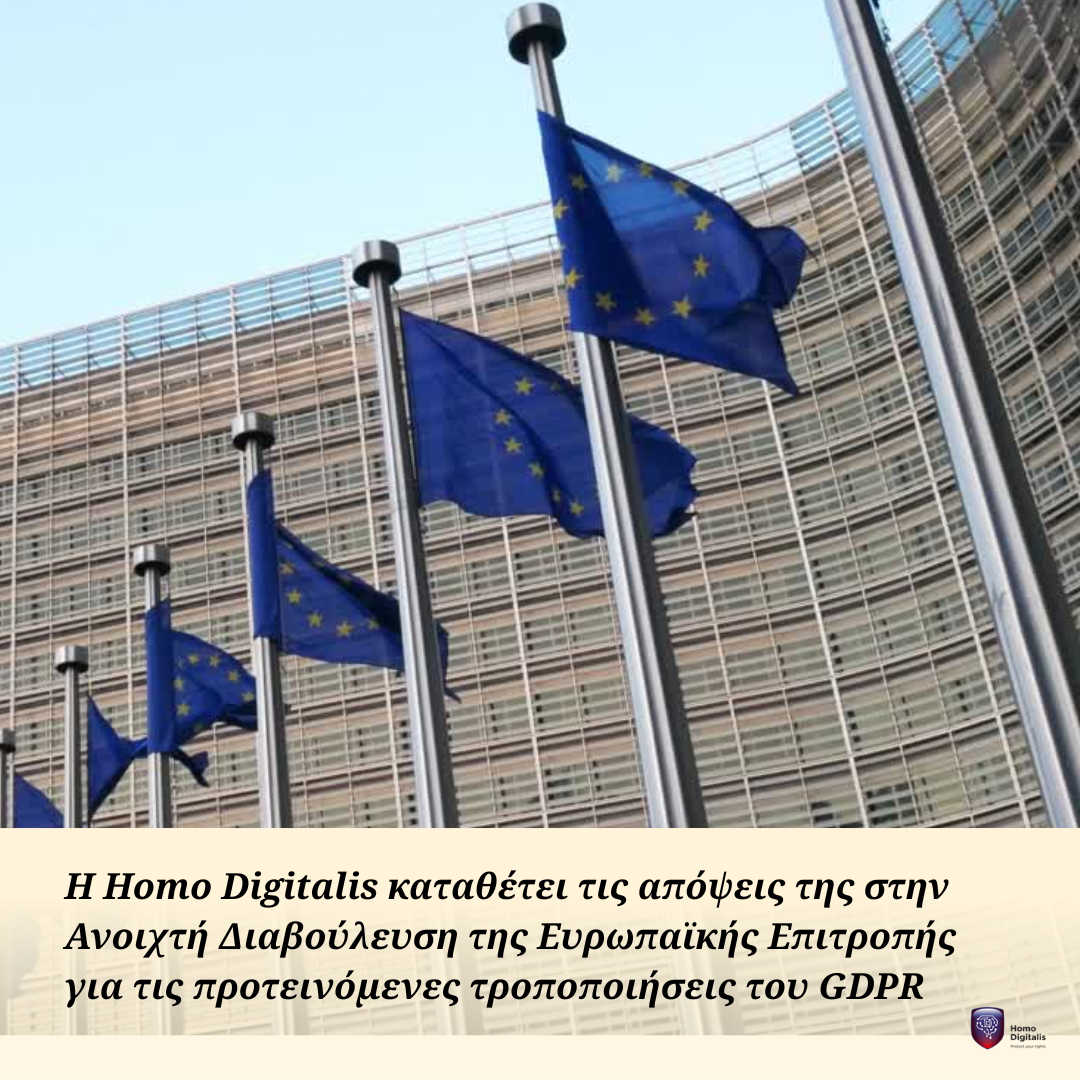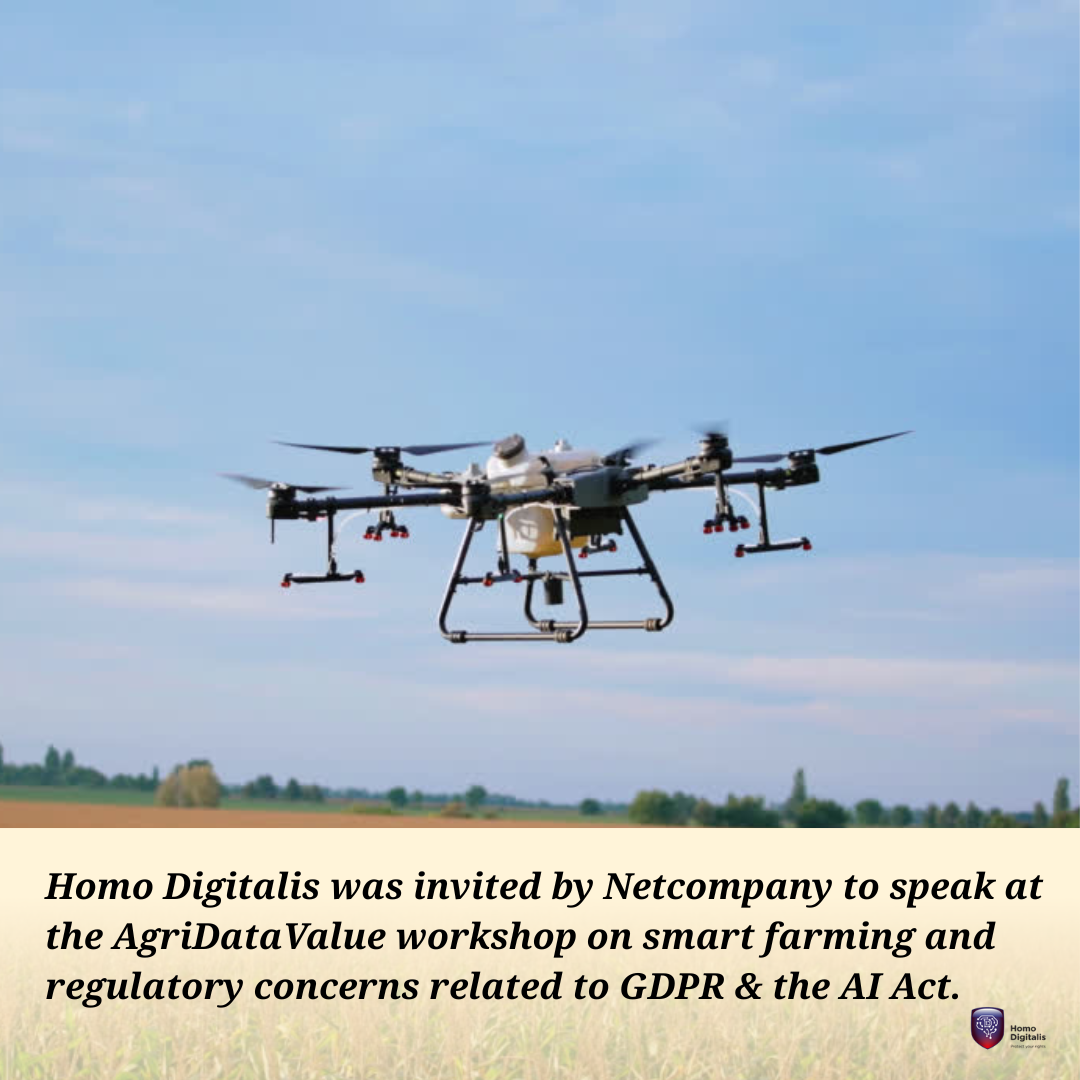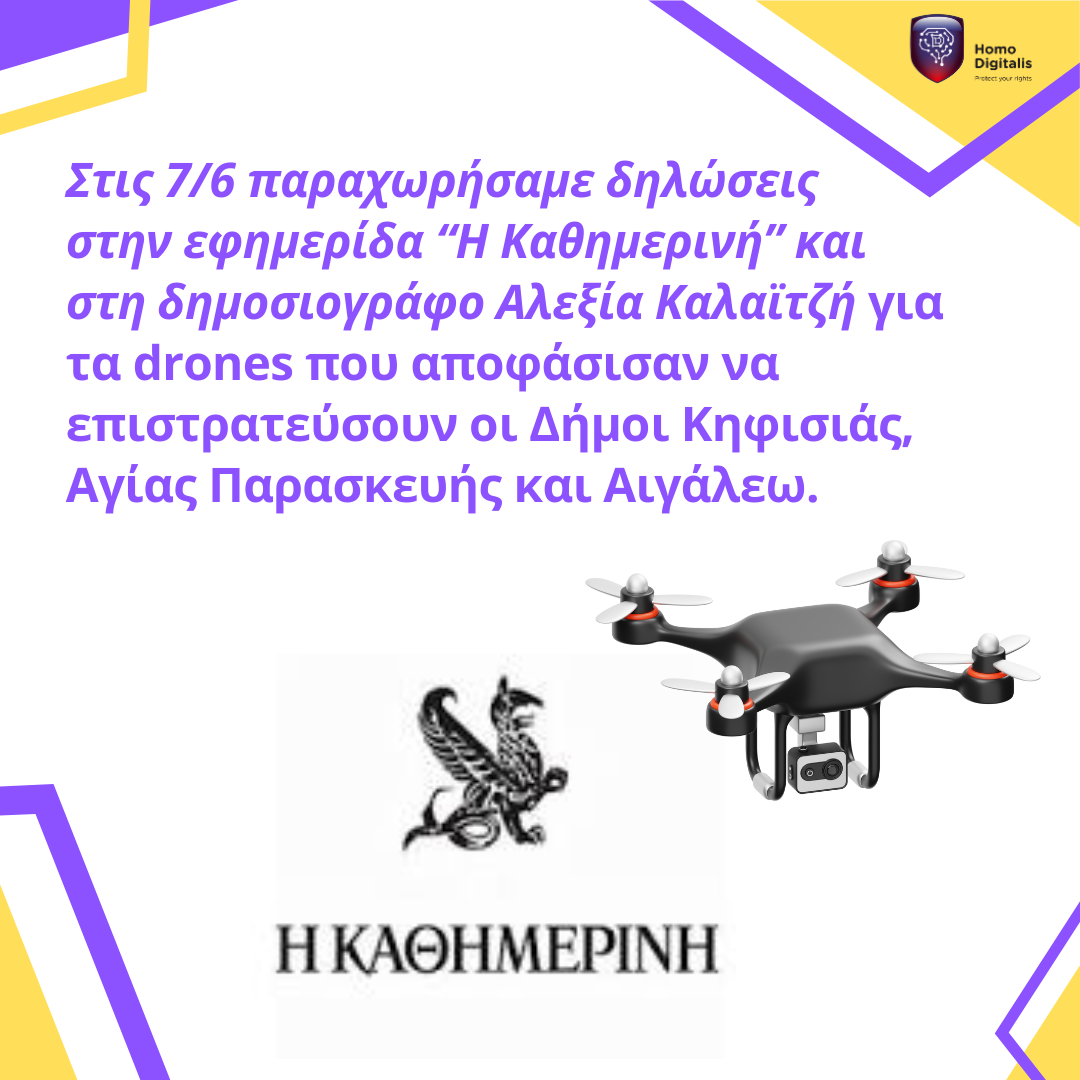We submitted our views to the European Commission’s public consultation on Article 30(5) GDPR
Yesterday, Homo Digitalis submitted its views as part of the European Commission’s public consultation on Article 30(5) of the GDPR.
In our submission, we call on the Commission to withdraw the proposed amendment and stress the need to ensure that the GDPR is not reopened or modified through broader deregulatory initiatives. The priority must remain on the effective application and enforcement of the existing framework, rather than on reducing the safeguards that are essential for protecting fundamental rights in the digital age.
You can read our full position here.
Homo Digitalis spoke on smart farming and the AI Act
In the beginning of july, the AgriDataValue project hosted an in-depth online workshop dedicated to data privacy, legal, and ethical dimensions within the context of smart farming. Organized by Netcompany, the event brought together AgriDataValue partners, Advisory Board members, legal experts, as well as representatives from related EU-funded projects.
Homo Digitalis participated in the workshop, giving a legal presentation on the topic “Smart Agriculture from a GDPR and AI Act Perspective”. Many thanks to Ioannis Chrysakis for the kind invitation! Our Executive Director, Eleftherios Chelioudakis, represented us.
The objective of the workshop was to identify and validate key ethical, legal, social, and privacy-related topics linked to the AgriDataValue platform. It also served as an opportunity to review data flow mappings between the project’s technologies, user types, and integrated services, a vital exercise for ensuring compliance, transparency, and responsible data governance.
Homo Digitalis contributes to two EU consultations on the Data Strategy and high-risk AI systems
Last Friday, July 18th, Homo Digitalis submitted detailed input to two public consultations launched by the European Commission.
The first consultation focused on collecting targeted input from stakeholders regarding the implementation of the AI Act (2024/1689) rules for high-risk AI systems. According to Article 6(5) of the AI Act, the Commission must publish guidelines on the practical implementation of the high-risk classification rules by February 2, 2026, accompanied by a list of practical examples of both high-risk and non-high-risk AI systems. Additionally, Article 96(1)(a) requires the Commission to provide guidelines on the application of obligations and responsibilities for high-risk AI systems, including those across the AI value chain, as defined in Article 25. In its submission, Homo Digitalis provided practical examples of AI systems from Greece and other countries, and highlighted key issues that should be clarified in both the classification and compliance guidelines.
The second consultation addressed the EU Data Strategy. Its three goals are to: 1) boost investment in data technologies and promote data sharing through voluntary or funded initiatives; 2) streamline existing rules and develop data tools to reduce administrative burdens; and 3) shape an international data strategy that ensures safeguards for data transfers outside the EU and encourages data inflows into the EU.
In its response, Homo Digitalis raised strong concerns about potential undermining of personal data protection under the pretext of simplification, flexibility, and competitiveness. The organisation reaffirmed its position that fundamental rights must be strengthened through the use of new technologies and rejected the framing of existing legal frameworks as a barrier to innovation. According to Homo Digitalis, the challenges lie primarily in the lack of enforcement and resources, not the laws themselves.
You can read our full submission for the first consultation here.
We thank the drafting team, Stavrina Chousou, Niki Georgakopoulou, Sofia Antonopoulou, and Eleftherios Chelioudakis, for their valuable contributions.
You can read our full submission for the second consultation here, edited by our Executive Director, Eleftherios Chelioudakis.
We spoke to the newspaper Kathimerini about the use of drones by municipalities
The municipalities of Kifisia, Agia Paraskevi, and Aigaleo have decided to deploy drones in order to protect municipal property from vandalism and to address juvenile delinquency.
In an article by journalist Alexia Kalaitzi for the newspaper Kathimerini, published in early June, Homo Digitalis provided relevant statements!
Is the use of drones by a local authority for the purpose of tackling delinquency lawful? Are citizens’ personal data protected when drones fly—sometimes in ways that may make their presence imperceptible—in public spaces, that is, in more than 150 points of interest, covering every neighborhood or even outside residents’ balconies?
Read more here.
We warmly thank the journalist for her interest in our work! Statements on behalf of Homo Digitalis were provided by our Executive Director, Eleftherios Chelioudakis.
We sent an open letter to the EU calling for a reassessment of Israel’s adequacy decision under the GDPR
Together with European Digital Rights, Access Now, and 16 other civil society organizations, we submitted a second open letter to the European Commission, urging it to urgently reassess Israel’s adequacy status under the GDPR.
Since the Commission reconfirmed Israel’s status in January 2024, the situation has only deteriorated:
Escalating human rights violations in Gaza and the West Bank
Expansion of surveillance systems and biometric repression
Legal reforms undermining oversight of personal data processing
Ongoing data flows to Israeli companies with ties to security services
Use of AI-driven targeting systems in a context where the International Court of Justice has found plausible genocide
Application of Israeli law to occupied territories, in breach of the EU’s own policy
This is not just about technical compliance. It is about whether the EU’s data protection framework can credibly uphold fundamental rights, and whether data originating in the EU is being used to facilitate unlawful practices.
Read the letter here.




